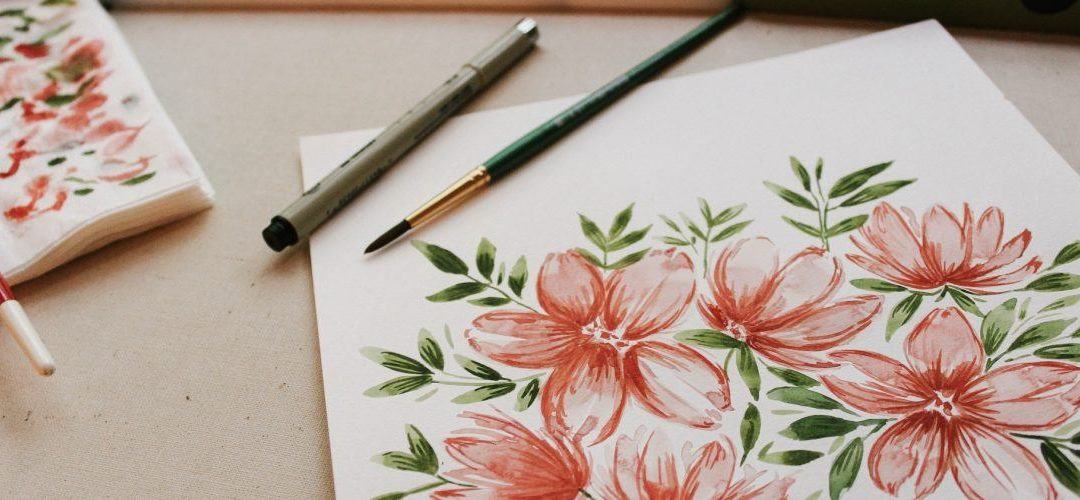The coronavirus (COVID-19) pandemic sees millions of people facing lockdown and isolation by not being allowed to leave their homes. Whilst for many this means a chance to catch up on their favourite TV shows or spend quality time with their loved ones, for those living with dementia and Alzheimer’s disease, it can be a very confusing and scary time. Cognitive stimulation is of paramount importance for people living with this disease as it may help slow down the decline in memory loss. Therefore, it is extremely important to maintain activity programs (in isolation) because it will lead to a better quality of life. If you are a caregiver or have a loved one living with dementia, here are 10 stimulating activities that you can try at home during this lockdown:
Art
Arts and crafts, which include knitting or painting as long as the patterns and tools are simple enough. Completing a project can take weeks for a person with dementia, so the smaller and simpler the project the more rewarding it will be for them.
Spring Cleaning
Believe it not, simple tidying up tasks can actually be so rewarding. Cleaning and simple home tasks like using a broom, wiping surfaces, folding towels or other simple tasks that are easy to do and can be completed thereby giving the person with dementia a sense of accomplishment. Organisational tasks like stacking, packing, or dividing items based on categories will be ideal for someone who takes pleasure in organisation. This can be simple tasks like separating cutlery or organising office items.
Reading
It is easy to feel lonely when you have dementia, and loneliness and the inability to communicate can be big precursors to anxiety and depression. Read a newspaper or magazine to your loved one and try not to focus on any scary news that may frighten them i.e. the increase in death counts from COVID-19. Look for the happy feel-good stories.
Music
Music therapy is a popular activity as people with dementia respond well to it. When used appropriately, music can shift moods, manage stress-induced agitation, stimulate positive interactions, facilitate cognitive function, and coordinate motor movements. Singing songs, listening to music, and dancing are all great ways to encourage participation and it is suitable for people at different progressions of dementia. Playing music from their younger years and encouraging dancing are wonderful ways to carry out music activities at home.
Gardening
Letting your loved one spend time in the garden is very therapeutic. Not only does gardening help alleviate stress, it also provides the body with good vitamins from the outdoors and promotes exercise and blood flow. Did you know the increase in physical activity associated with gardening has been shown to decrease risks for dementia? Gardening is a hobby that many elderly people enjoy, and it can bring feelings of relaxation and joy to someone with dementia. If you have a garden at home, spend time outdoors by gardening, taking in the fresh away or just walking around the garden pointing things out. The feeling of isolation will affect everyone during this difficult time so try and make use of your outdoor areas.
Puzzles
Work on puzzles such as jigsaw puzzles, crosswords, matching shapes and other simple games. This stimulation keeps their minds busy with constructive thoughts and helps to keep anxiety at bay. It is also a social activity that the entire family can enjoy together.
Baking or Cooking
Baking or cooking in the kitchen by following simple recipes closely supervised and moderated for their safety is a great idea. A person with a memory problem will forget that a stove has been switched on and might be hot, or they might have lost some mobility in their hands so always ensure you are with them during this activity. This is also a great sensory development tool because it encourages them to use their fingers and feel different textures.
We encourage you to carry out these type of activities at least once or twice a week with your loved ones to increase engagement and keep them stimulated. Remember, these activities are also about the process, so try not to focus on the outcome but rather the time spent with your loves ones as well. We wish you well during this very difficult time.
